This is a new content in the draft law amending and supplementing a number of articles of the Law on Education that the Ministry of Education and Training has put forward for comments.
VOCATIONAL SECONDARY SCHOOL IS A LEVEL IN THE NATIONAL EDUCATION SYSTEM
Specifically, the draft clearly states that vocational education is part of the national education system, including vocational secondary schools and colleges, training at elementary, intermediate, and college levels.
The draft removes the concept of secondary school, changes it to vocational secondary school and adds vocational secondary school as a level of education in the national education system. Vocational secondary schools will integrate vocational knowledge and high school program knowledge.
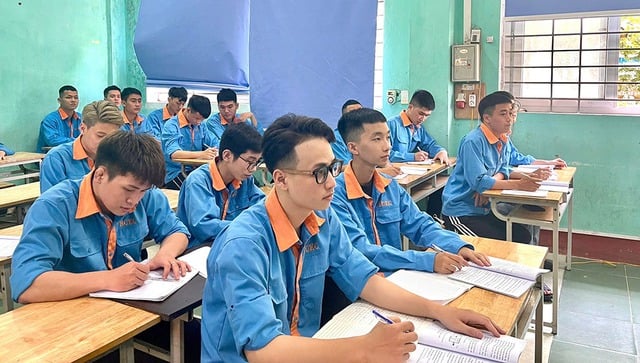
If the draft amendment to the Education Law is issued, junior high school graduates will have two directions: high school and vocational high school.
PHOTO: MY QUYEN
After finishing grade 9, students will have 3 options: go to high school, vocational high school with a primary certificate or vocational high school with an intermediate certificate.
According to the Ministry of Education and Training, the above amendments and supplements create opportunities for learners to have more options after secondary school, transfer studies, etc.; at the same time, they are consistent with UNESCO's systematic approach.
C STANDARDIZE THE SYSTEM, MAKE THE LEARNING ROADMAP TRANSPARENT
Commenting on this change in the draft law amending and supplementing a number of articles of the Education Law, Dr. Hoang Ngoc Vinh, former Director of the Department of Vocational Education of the Ministry of Education and Training, said: "The elimination of the concept of intermediate school and the term "intermediate level" is not simply a technical action, but a strategic step in reforming the education system. It demonstrates the seriousness in standardizing the system, making the learning path transparent, and modernizing the legal framework to meet the requirements of international integration."
According to Dr. Vinh, the UNESCO International Standard Classification of Education (ISCED) 2011 does not have any level of education called intermediate. ISCED is the basis for countries to standardize their education systems, serving the mutual recognition of diplomas and certificates. In this framework, levels are divided coherently from primary education (level 1), secondary education (level 2), high school (level 3), to post-secondary education (level 4 to level 8). "Vietnam's maintenance of a concept not included in ISCED makes it difficult for our education system to be compared internationally and hinders the recognition of diplomas, labor exchange and training cooperation. A strong education system does not accept the existence of an education level that is not internationally recognized, has an unclear position in the national system, and does not have consistent legal value. The national education system needs a unified name, which is vocational secondary education, to ensure coherence, transparency and ease of management," Mr. Vinh emphasized.
Dr. Vinh also said that the domestic legal basis has never established an intermediate level. He cited Decree 90 of the Government in 1993, which stipulates the framework structure of the national education system, the system of diplomas and certificates on education and training, with clear orientation for the post-secondary education stream, including two directions: vocational secondary school and professional secondary school, without intermediate level.
"This shows that the existence of the term intermediate level is an administrative consequence, not a scientifically oriented intention. That is why it leads to a series of training programs with unclear positions: not belonging to general education, not really after general education, and not equivalent to college. Not only should the concept of intermediate school be removed, but the term "intermediate level" should also be removed from the Education Law, the Vocational Education Law and the National Qualifications Framework to move towards building a modern, easy-to-understand, easy-to-compare and transparent education system," Dr. Vinh said.
X ELIMINATE THE DISTINCTION BETWEEN HIGH SCHOOL AND VOCATIONAL SECONDARY SCHOOL
Dr. Le Viet Khuyen, former Deputy Director of the Department of Higher Education and currently Vice President of the Association of Vietnamese Universities and Colleges, supports this amendment in the draft law. He said that in many countries, upper secondary education has two streams: general secondary education and vocational secondary education. Vocational secondary education diplomas and high school graduation certificates are completely equal, equivalent to each other and both achieve level 3 in terms of education.
Dr. Hoang Ngoc Vinh also assessed that doing so would eliminate the distinction between high school and vocational high school, enhance the status of vocational education so that vocational high school graduates and high school students of the same level have equal rights in terms of opportunities for advanced study, employment and career development. Thus, new learners will not hesitate to choose and reduce the pressure of taking the entrance exam to public grade 10, and stream when there is no longer a distinction between high school and vocational high school. That is the breakthrough that the amendment of the Education Law and the Vocational Education Law should also emphasize.
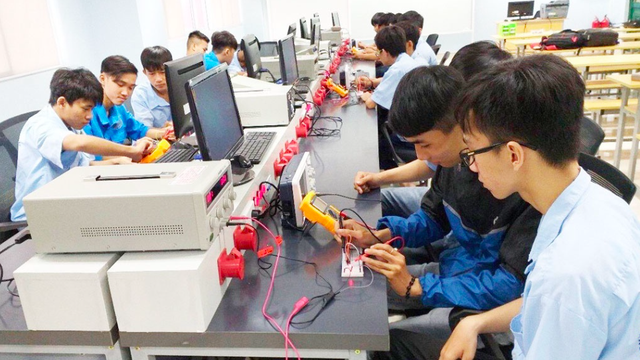
According to experts, vocational secondary education should be made a level of education instead of secondary education to solve the problem of streaming.
Photo: My Quyen
According to Dr. Khuyen, Vietnam needs to reorganize the education system of high schools, intermediate schools, and local vocational training institutions to form two basic types of schools: high schools and vocational secondary schools. The high school stream mainly provides recruitment sources for colleges and universities. The vocational secondary school stream mainly provides human resources to participate in the labor market, a large part will also be the recruitment source for practical colleges and then applied universities.
"Over the past years, the failure to thoroughly stream students after secondary school has resulted in Vietnam only having a human resource with very low vocational qualifications because they are not trained (despite having a high school diploma), or are trained at a level below professional standards (such as in the intermediate level), or below academic standards (such as in the elementary and intermediate levels according to the Vocational Education Law), or at a level exceeding the country's current technological level (such as in the college level). The results of the comprehensive assessment of human resources by the BERI (Business Environment Risk Intelligence) Organization have long ranked Vietnam in the last group of countries, with vocational skills below the standard level," Dr. Le Viet Khuyen commented.
Therefore, Mr. Khuyen believes that making vocational secondary school a level of education instead of secondary school is one of the tasks that the education sector needs to do immediately to solve the problem of streaming, interconnectivity and ensuring a reasonable human resource structure.
It's not just a matter of name
If the draft law becomes law, junior colleges will become vocational high schools, according to Professor Nguyen Minh Thuyet, former Vice Chairman of the National Assembly's Committee on Culture, Education, Youth, Adolescents and Children, it is just a matter of changing the name to standardize, conform to international standards and have consistency in the national education system.
"The vocational secondary school program is to learn cultural knowledge integrated with vocational knowledge and skills. Meanwhile, the training program that the secondary school is implementing for junior high school graduates is also vocational training combined with culture. According to current regulations, junior high school graduates with a secondary school diploma and who have completed the required cultural credits prescribed by the Ministry of Education and Training are all eligible to take the university entrance exam and transfer to university. So how can we make it so that after changing to vocational secondary school, students are ready to proactively choose vocational secondary school instead of repeating the difficult recruitment situation like junior high school?", Professor Thuyet said.
According to Mr. Thuyet, at that time, state agencies need to remove the recruitment regulation requiring a high school diploma as in the past. At the same time, the state must have a separate policy for junior high school graduates to choose vocational high school.
A vocational training expert is concerned that when vocational high school is a level of education in the national education system, it is no longer a matter of name, but we must determine: what does vocational high school train, who does it train, train for the labor market or to connect to colleges and universities? "To clearly determine the above issues, there must be a process of research, survey... to understand the role, nature, have a basis, and provide evidence of its feasibility and superiority. Avoid the situation of turning students into pilot tools and then changing after a while", the expert commented.
Source: https://thanhnien.vn/bo-khai-niem-truong-trung-cap-bang-trung-hoc-nghe-binh-dang-voi-thpt-185250515162100902.htm



![[Photo] Ho Chi Minh City residents show their affection to celebrate the 80th anniversary of the August Revolution and National Day September 2](https://vphoto.vietnam.vn/thumb/1200x675/vietnam/resource/IMAGE/2025/9/3/55d860cbb63a40808e1e74ad9289b132)


![[Photo] Special art program "Da Nang - Connecting the future"](https://vphoto.vietnam.vn/thumb/1200x675/vietnam/resource/IMAGE/2025/9/2/efdd7e7142fd45fabc2b751d238f2f08)

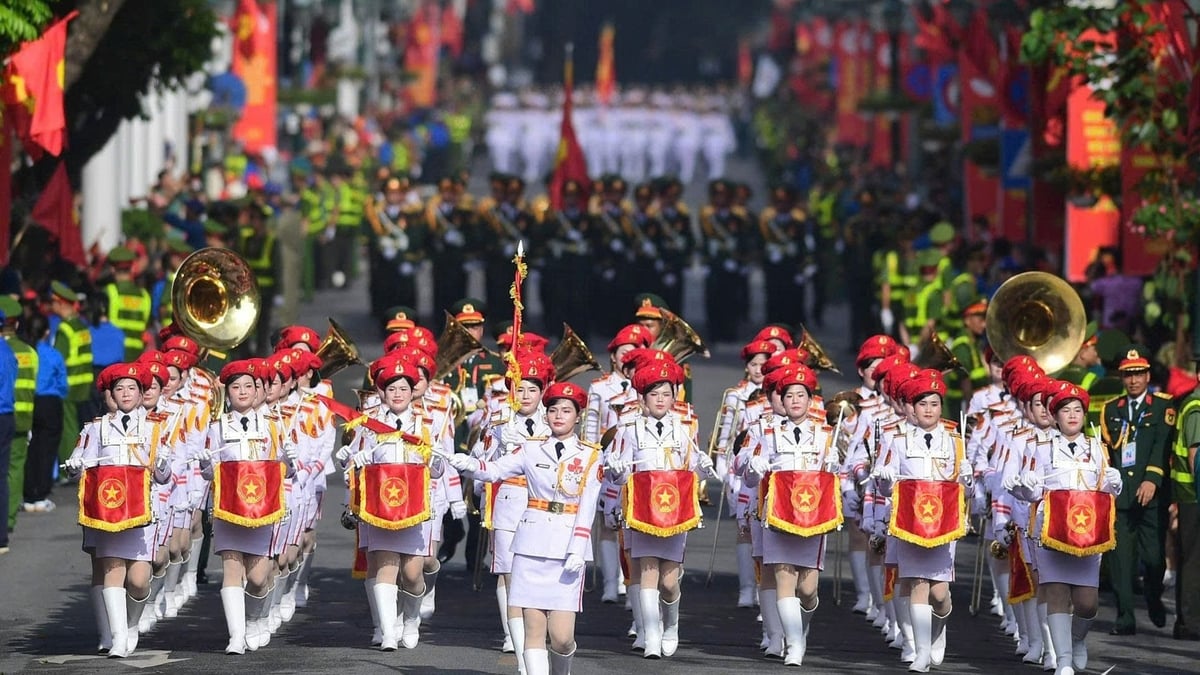





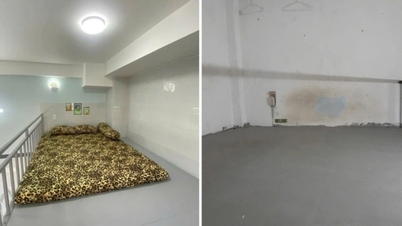

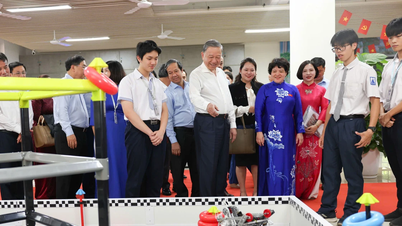

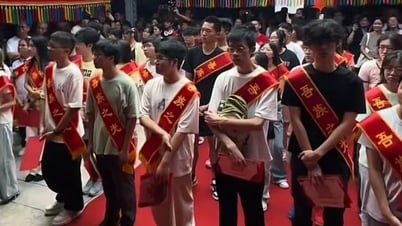





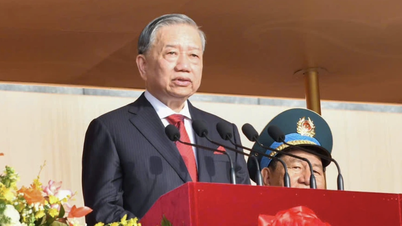



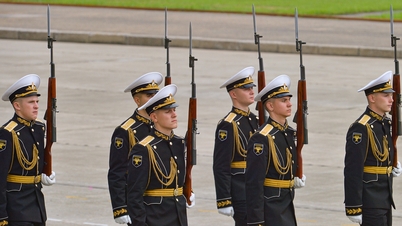
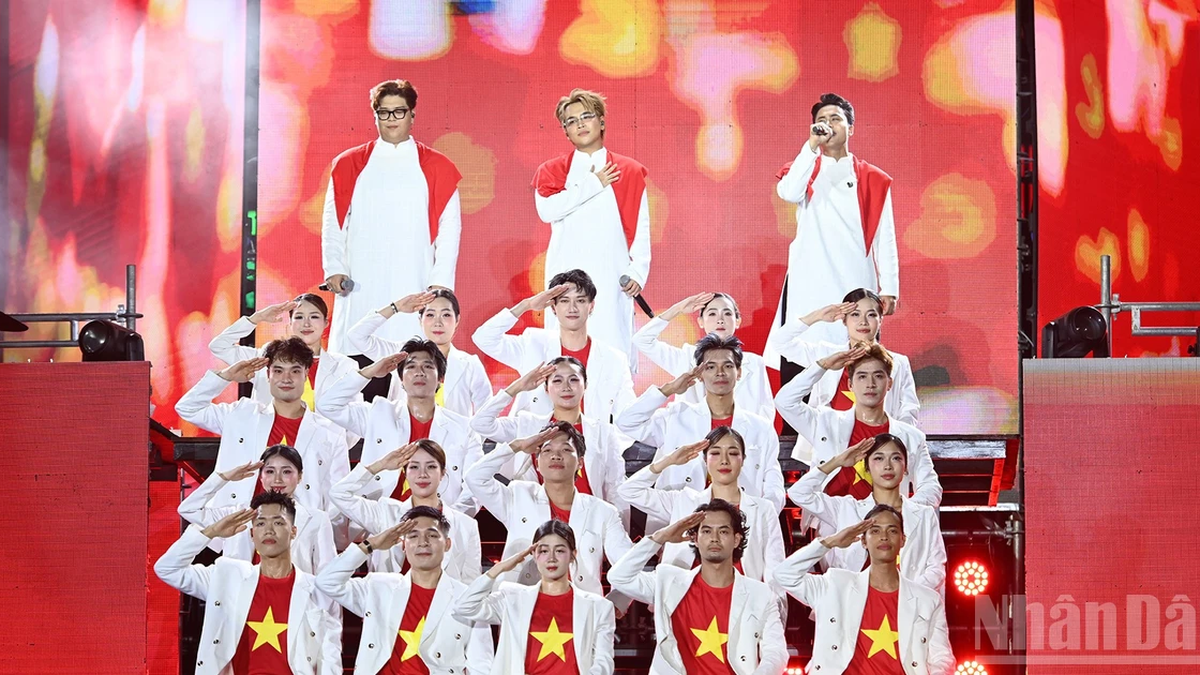








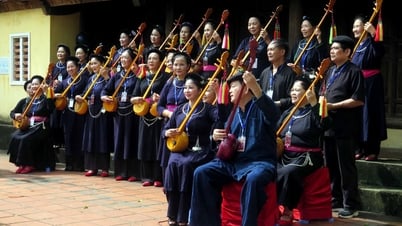





















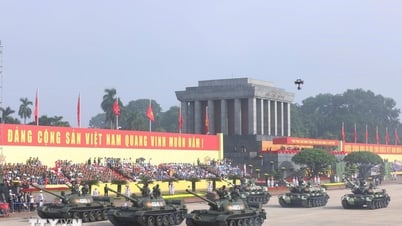









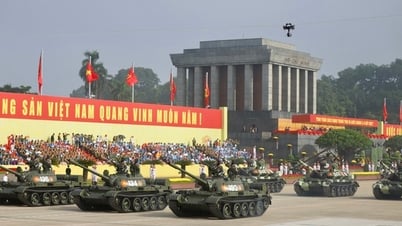





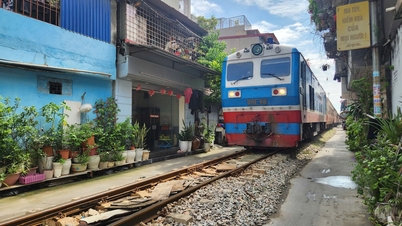



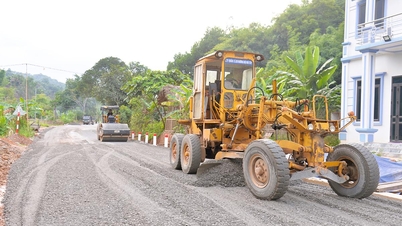






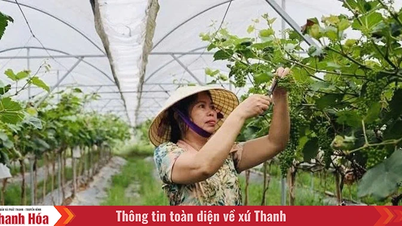







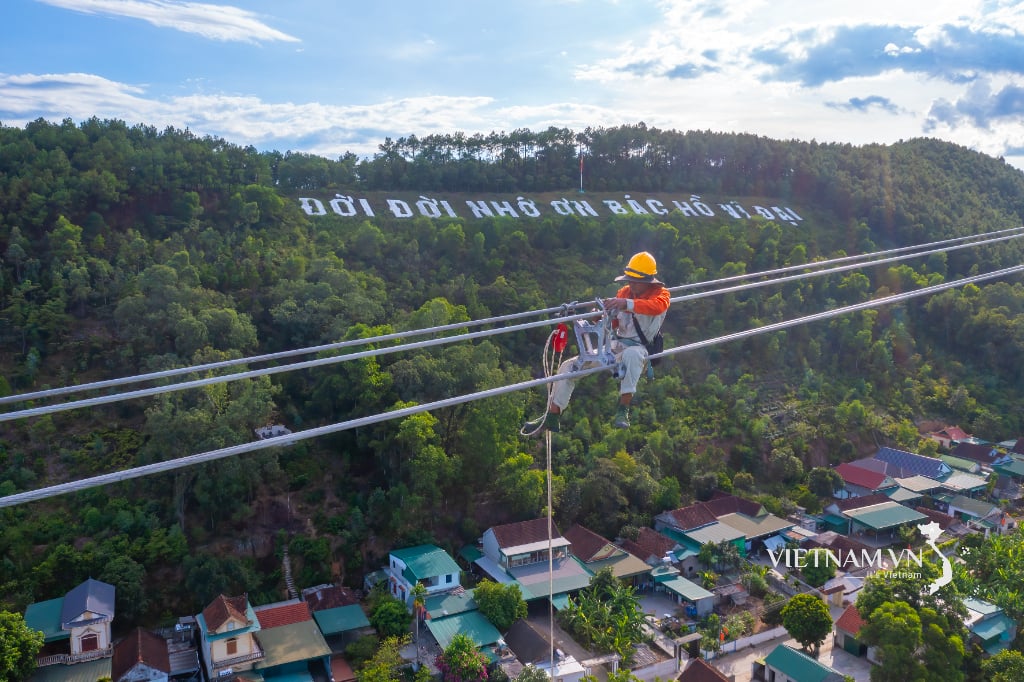



Comment (0)